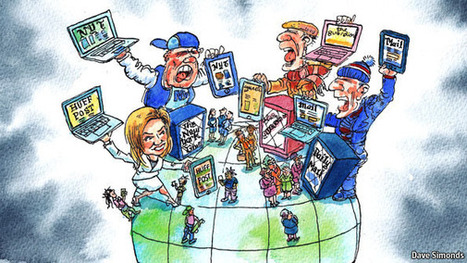IN JANUARY the New York Times lost its top spot in comScore's ranking of the world's biggest newspaper websites to Britain's Daily Mail. The Times sniffed at the accuracy of comScore's figures, which exaggerate the Mail's online audience by including a personal-finance site that the paper owns.
But the battle to be biggest reflects a growing phenomenon: national news publications going global. A mere one-quarter of the Mail's online readers are in Britain. The Guardian, which caters to those who like their news left-leaning and serious in contrast to the Mail's right-wing raciness, has one-third in Britain and another third in America (see charts). Their chief competitors are two American publications: the New York Times, which like the Guardian aims at readers of serious news, and the Huffington Post, which since its launch in 2005 has become the biggest site of the four (it is not in comScore's “newspaper” category). That the HuffPo is beating papers with a history stretching back to the 19th century is a sign of just how differently news works online....



 Your new post is loading...
Your new post is loading...










I really enjoyed this piece from the "Economist" and it's look at shifts in the newspaper business and marketplace. the unknown question at this point, is the economics of the "new" newspaper model. As an advertiser in any of these publications, do I really care and want to pay for the 75% that aren't "local" readers? Only if I'm a global, social business.